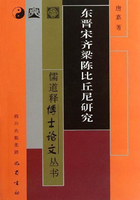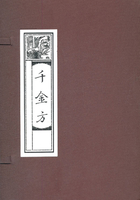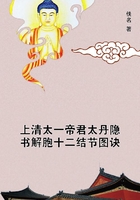William's Voyage to Holland--William's Entrance into the Hague--Congress at the Hague--William his own Minister for Foreign Affairs--William obtains a Toleration for the Waldenses; Vices inherent in the Nature of Coalitions--Siege and Fall of Mons--William returns to England; Trials of Preston and Ashton--Execution of Ashton--Preston's Irresolution and Confessions--Lenity shown to the Conspirators--Dartmouth--Turner; Penn--Death of George Fox; his Character--Interview between Penn and Sidney--Preston pardoned--Joy of the Jacobites at the Fall of Mons--The vacant Sees filled--Tillotson Archbishop of Canterbury--Conduct of Sancroft--Difference between Sancroft and Ken--Hatred of Sancroft to the Established Church; he provides for the episcopal Succession among the Nonjurors--The new Bishops--Sherlock Dean of Saint Paul's--Treachery of some of William's Servants--Russell--Godolphin--Marlborough--William returns to the Continent--The Campaign of 1691 in Flanders--The War in Ireland; State of the English Part of Ireland--State of the Part of Ireland which was subject to James--Dissensions among the Irish at Limerick--Return of Tyrconnel to Ireland--Arrival of a French Fleet at Limerick;Saint Ruth--The English take the Field--Fall of Ballymore; Siege and Fall of Athlone--Retreat of the Irish Army--Saint Ruth determines to fight--Battle of Aghrim--Fall of Galway--Death of Tyrconnel--Second Siege of Limerick--The Irish desirous to capitulate--Negotiations between the Irish Chiefs and the Besiegers--The Capitulation of Limerick--The Irish Troops required to make their Election between their Country and France--Most of the Irish Troops volunteer for France--Many of the Irish who had volunteered for France desert--The last Division of the Irish Army sails from Cork for France--State of Ireland after the War ON the eighteenth of January 1691, the King, having been detained some days by adverse winds, went on board at Gravesend. Four yachts had been fitted up for him and for his retinue. Among his attendants were Norfolk, Ormond, Devonshire, Dorset, Portland, Monmouth, Zulestein, and the Bishop of London. Two distinguished admirals, Cloudesley Shovel and George Rooke, commanded the men of war which formed the convoy. The passage was tedious and disagreeable. During many hours the fleet was becalmed off the Godwin Sands; and it was not till the fifth day that the soundings proved the coast of Holland to be near. The sea fog was so thick that no land could be seen; and it was not thought safe for the ships to proceed further in the darkness. William, tired out by the voyage, and impatient to be once more in his beloved country, determined to land in an open boat. The noblemen who were in his train tried to dissuade him from risking so valuable a life; but, when they found that his mind was made up, they insisted on sharing the danger. That danger proved more serious than they had expected. It had been supposed that in an hour the party would be on shore. But great masses of floating ice impeded the progress of the skiff; the night came on; the fog grew thicker; the waves broke over the King and the courtiers. Once the keel struck on a sand bank, and was with great difficulty got off. The hardiest mariners showed some signs of uneasiness. But William, through the whole night, was as composed as if he had been in the drawingroom at Kensington. "For shame," he said to one of the dismayed sailors "are you afraid to die in my company?" A bold Dutch seaman ventured to spring out, and, with great difficulty, swam and scrambled through breakers, ice and mud, to firm ground. Here he discharged a musket and lighted a fire as a signal that he was safe. None of his fellow passengers, however, thought it prudent to follow his example. They lay tossing in sight of the flame which he had kindled, till the first pale light of a January morning showed them that they were close to the island of Goree. The King and his Lords, stiff with cold and covered with icicles, gladly landed to warm and rest themselves.1After reposing some hours in the hut of a peasant, William proceeded to the Hague. He was impatiently expected there for, though the fleet which brought him was not visible from the shore, the royal salutes had been heard through the mist, and had apprised the whole coast of his arrival. Thousands had assembled at Honslaerdyk to welcome him with applause which came from their hearts and which went to his heart. That was one of the few white days of a life, beneficent indeed and glorious, but far from happy. After more than two years passed in a strange land, the exile had again set foot on his native soil. He heard again the language of his nursery. He saw again the scenery and the architecture which were inseparably associated in his mind with the recollections of childhood and the sacred feeling of home;the dreary mounds of sand, shells and weeds, on which the waves of the German Ocean broke; the interminable meadows intersected by trenches; the straight canals; the villas bright with paint and adorned with quaint images and inscriptions. He had lived during many weary months among a people who did not love him, who did not understand him, who could never forget that he was a foreigner. Those Englishmen who served him most faithfully served him without enthusiasm, without personal attachment, and merely from a sense of public duty. In their hearts they were sorry that they had no choice but between an English tyrant and a Dutch deliverer. All was now changed. William was among a population by which he was adored, as Elizabeth had been adored when she rode through her army at Tilbury, as Charles the Second had been adored when he landed at Dover. It is true that the old enemies of the House of Orange had not been inactive during the absence of the Stadtholder. There had been, not indeed clamours, but mutterings against him. He had, it was said, neglected his native land for his new kingdom. Whenever the dignity of the English flag, whenever the prosperity of the English trade was concerned, he forgot that he was a Hollander. But, as soon as his well remembered face was again seen, all jealousy, all coldness, was at an end. There was not a boor, not a fisherman, not an artisan, in the crowds which lined the road from Honslaerdyk to the Hague, whose heart did not swell with pride at the thought that the first minister of Holland had become a great King, had freed the English, and had conquered the Irish. It would have been madness in William to travel from Hampton Court to Westminster without a guard; but in his own land he needed no swords or carbines to defend him. "Do not keep the people off;" he cried: "let them come close to me; they are all my good friends." He soon learned that sumptuous preparations were making for his entrance into the Hague. At first he murmured and objected. He detested, he said, noise and display. The necessary cost of the war was quite heavy enough. He hoped that his kind fellow townsmen would consider him as a neighbour, born and bred among them, and would not pay him so bad a compliment as to treat him ceremoniously. But all his expostulations were vain. The Hollanders, simple and parsimonious as their ordinary habits were, had set their hearts on giving their illustrious countryman a reception suited to his dignity and to his merit; and he found it necessary to yield. On the day of his triumph the concourse was immense. All the wheeled carriages and horses of the province were too few for the multitude of those who flocked to the show. Many thousands came sliding or skating along the frozen canals from Amsterdam, Rotterdam, Leyden, Haarlem, Delft. At ten in the morning of the twenty-sixth of January, the great bell of the Town House gave the signal. Sixteen hundred substantial burghers, well armed, and clad in the finest dresses which were to be found in the recesses of their wardrobes, kept order in the crowded streets. Balconies and scaffolds, embowered in evergreens and hung with tapestry, hid the windows. The royal coach, escorted by an army of halberdiers and running footmen, and followed by a long train of splendid equipages, passed under numerous arches rich with carving and painting, amidst incessant shouts of "Long live the King our Stadtholder." The front of the Town House and the whole circuit of the marketplace were in a blaze with brilliant colours. Civic crowns, trophies, emblems of arts, of sciences, of commerce and of agriculture, appeared every where. In one place William saw portrayed the glorious actions of his ancestors.
同类推荐
热门推荐
东晋佛教思想与文学研究
佛教自两汉之际传入中国,先是依附于中国传统思想中的道术、玄学,至东晋时与中国传统文化进一步融合,影响遍及全国。当时,无论在文化或思想上,佛教逐渐地渗透到人们的日常生活和心灵之中。特别是佛教深入到士大夫阶层,潜移默化地影响了东晋文人的诗歌和文学创作。东晋的玄言诗、山水诗、佛理诗中都可以见到佛教的宗教理想和佛学理论独特的思维方式。佛经故事丰富的想象力,佛教宣扬的神通变化尤其是当时流行的观音感应故事,为中国古典小说带来了新的生命力,拓展了新的叙事领域,具有积极的推动作用。邪妃倾世之熠王殿下宠上天
她,前世是一个中学生,一次车祸,竟穿越到了一个刚出世的尚书府嫡小姐身上,她以为自己以后可以在这个天下横着走了,直到她十五岁那年遇到了他,从此以后,她开始了漫长的追夫之路。唐诗宋词元曲300首鉴赏(中华古文化经典丛书)
唐诗,大气;宋词,婉转;元曲,明丽。唐诗、宋词、元曲,作为我们民族诗情“高峰体验”的结晶,足以唤醒沉睡在每一个炎黄子孙心灵深处的诗魂。诗情画意,词韵墨香,完美演绎传世经典;曲风赋骨,文锦书绣,全新展现华夏文明。绝境直播
末世来临,听说不进房间就会死?但是好像进了房间更容易死啊喂?坑爹游戏、异度空间、莫名其妙各种世界.....这是不把人折腾死不甘心是吗?不管是谁定的规矩,但绝对是个娱乐至上的超级变态!还有,脑子里多了个自称是灵的娃,供吃供喝也就算了,还得和娃斗智斗勇,又算怎么回事?某男干了坏事,得罪一大一小。“麻烦帮我也捅一刀,谢谢。”灵。“脾气挺大?”某男横一眼女人手里的刀。“两岁,你懂的。”某女冷笑。扬眉,“真捅?你舍得?”“不捅一下试试,怎么知道舍不舍得?”锋利的刀刃,在轮廓清晰的下巴上,轻轻划过——女主没心没肺,遇到的男人,都挺麻烦。这就叫报应。[末世逃杀]+[空间]+[异能]+[灵]的组合















